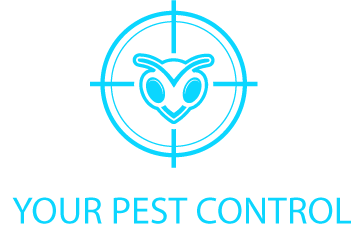Our warm, humid climate creates a welcoming environment for a diverse range of pests, and cockroaches consistently rank among the most bothersome. These resilient creatures aren't merely a nuisance; they can also pose potential risks to your health and overall wellbeing. That's why Your Pest Control is here to help!
The Reality Of Roaches
The National Pest Management Association offers a startling statistic: 78-98% of homes across the United States harbor cockroach populations. This holds true for the state of Georgia as well. Even if you maintain a spotless home, it could still potentially fall victim to an infestation. Our state's consistently warm temperatures and ample moisture offer an ideal breeding ground for them.
Several different species call Georgia home. One particularly widespread variety is the American Cockroach, also known as the Palmetto Bug. Despite its misleading name, this large, fast-breeder actually originates from Africa. German Cockroaches are another common sight; they're smaller but reproduce rapidly and have a particular fondness for cozy kitchens and bathrooms. Finally, Asian Cockroaches share many similarities with Germans, but they possess a strange attraction to light sources that can draw them inside.
Roaches are among Earth's most ancient inhabitants, with a history spanning over 300 million years. These insects can sprint up to three miles per hour, rapidly contaminating surfaces with pathogens. Surprisingly, they have the ability to adapt and develop aversions to specific baits and sugars, demonstrating remarkable learning capabilities. This adaptability makes them particularly difficult to control and contributes to their persistence in various environments. Additionally, their resilience is showcased by their unique biological traits, allowing them to survive in extreme conditions, further solidifying their status as formidable survivors in the natural world.
Health Risks From Roaches
They do more than just inspire disgust. These insects are known carriers of a range of harmful bacteria, such as E. coli and Salmonella, which means they have the potential to spread disease throughout your home. Additionally, their droppings and shed skin can worsen allergies and even trigger asthma attacks, posing a particular risk to children and other vulnerable individuals.
Infestations can have significant psychological effects on individuals, leading to stress, anxiety, and even shame. The presence of these pests is often perceived as a personal failure in hygiene or housekeeping, causing embarrassment and reluctance to invite guests into one’s home. This can lead to social isolation and a decrease in quality of life. Moreover, the fear and disgust triggered by them, known as entomophobia, can escalate into sleep disturbances, as individuals become hyper-vigilant and anxious about the possibility of them invading their personal space at night. The constant worry about health risks, such as allergies or disease transmission, can also contribute to ongoing stress and anxiety, impacting mental well-being. Overall, the psychological impact of infestations can be profound, affecting individuals' sense of security, comfort, and mental health in their living environment.
Professional Cockroach Extermination
Signs of an infestation include visible sightings of the insects, especially during the day, which often indicates a large population. Droppings, resembling black pepper or coffee grounds, are common evidence, as are egg casings (oothecae) and shed skins. An unpleasant, musty odor is another telltale sign, often accompanying significant infestations. Look out for roaches in dark, moist areas such as under sinks, behind refrigerators, or within cracks and crevices. Spotting these signs early is crucial for timely intervention, as they reproduce quickly and can soon lead to a larger infestation.
At Your Pest Control, we don't just deal with cockroach infestations, we understand these pests on a deeper level. Our team possesses extensive knowledge on their habits, preferred hiding places, and most importantly, the safest and most effective ways to eradicate them. We offer both proactive pest control plans to prevent infestations and targeted solutions to address existing problems with precision. Contact us today for an estimate.
Frequently Asked Cockroach Questions
Roaches, often viewed with a mix of fascination and aversion, hold many secrets and surprising facts beyond the commonly mentioned trivia about their survival skills. Here are three uncommon, interesting FAQs about cockroaches that might intrigue you:
Q1. Can cockroaches survive without food for a month?
A1. Yes, cockroaches can survive without food for up to one month, but this doesn't mean they can live without water for that long. A cockroach's survival without food is due in part to their slow metabolism and their ability to derive nutrients from a wide variety of sources, including glue, hair, and the remnants of dead insects. However, they cannot survive without water for more than a week. Their need for water is much more critical than their need for food, which is why you often find them in damp environments.
Q2. Do cockroaches have a social structure?
A2. Surprisingly, yes. Research has shown that cockroaches can exhibit social behavior. They are known to live in groups and make collective decisions. Studies have found that cockroaches can choose collectively where to live, demonstrating a form of social preference. For instance, when given the choice between three shelters, they will often choose to congregate in one, showing a preference for being with other members of their species. This behavior indicates a basic form of social interaction, which helps them survive in various environments.
Q3. Can cockroaches learn and remember?
A3. Cockroaches have demonstrated the ability to learn and remember, particularly in the context of avoiding threats. In experiments, cockroaches have been taught to associate certain smells with negative stimuli, such as a mild electric shock. After this conditioning, they were able to remember and avoid the scent associated with the unpleasant experience for at least 24 hours. This learning and memory capability helps them avoid predators and dangerous situations, contributing to their resilience as a species.
All Rights Reserved | Your Pest Control LLC

